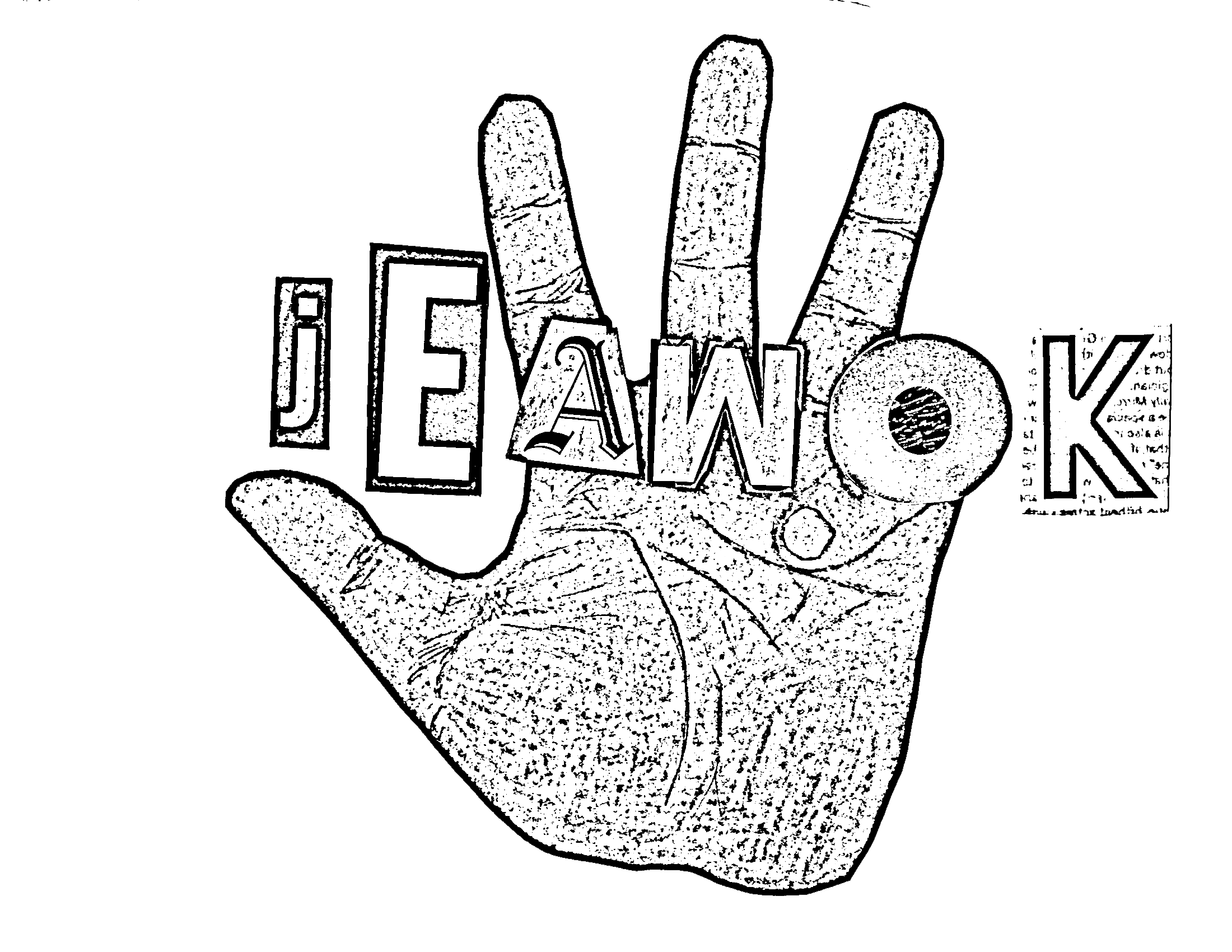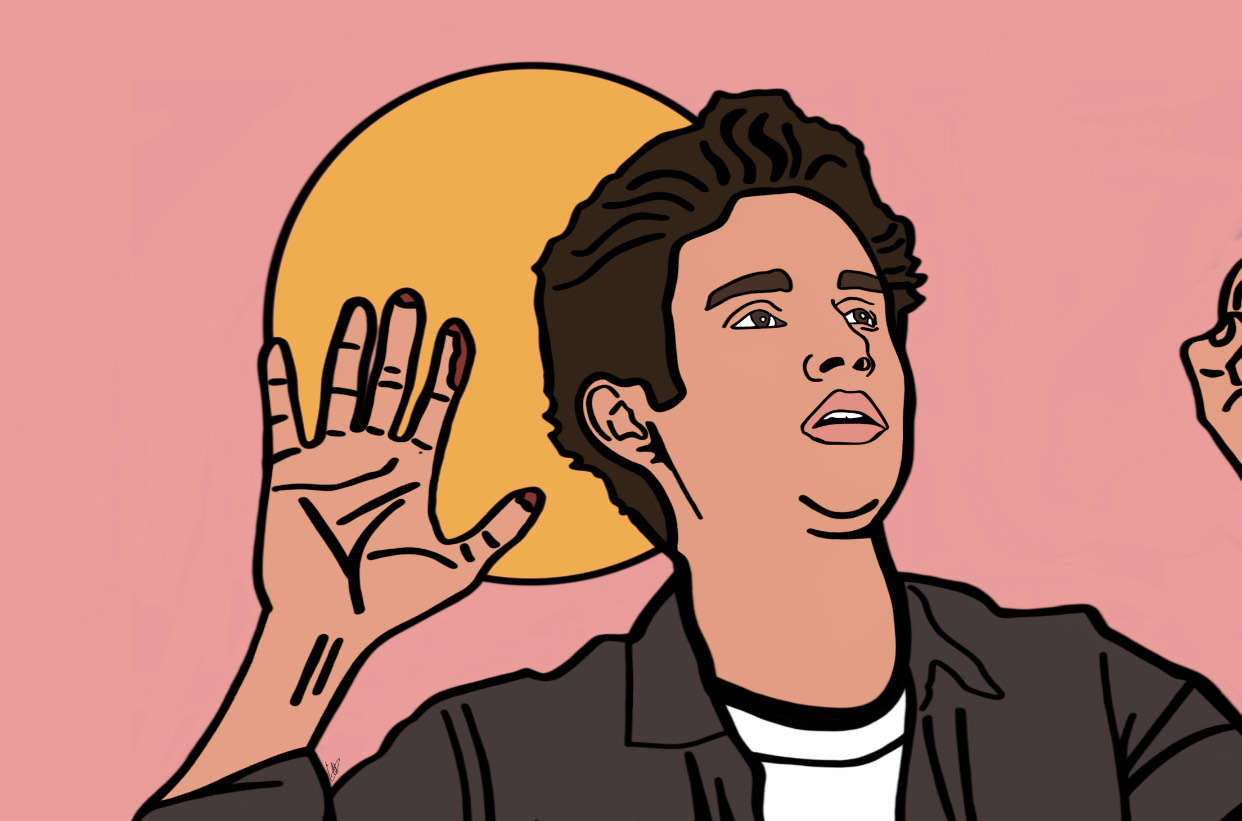From Ted Bundy to Joe Goldberg, Joe takes the cake in 2020 as our favorite serial-killing sociopath. Joe, in many ways, is characterized as the “perfect boyfriend”– he is a smooth talker, and invests more than any man in the modern age of dating normally would–aside from the creepy stalking and, you know, murdering, of course.
The phenomenon of women fetishizing serial killers is not necessarily something new, but it is something that lacks in-depth study and analysis. On a broader scale, society has always romanticized sex, violence, and crime – look no further than Fifty Shades of Grey, Law and Order: SVU, and the ongoing ‘kink’ theme between Maggie Siff and Paul Giamatti in the HBO hit-tv series, Billions.
While there are multiple accounts and studies of women who love men who kill, YOU’s Joe Goldberg provides a more relatable and palatable version of Ted Bundy. Instead of a charming 1970’s serial killer, Joe is a “millennial Ted,” who we can relate to, and empathize with.
Joe epitomizes the conventionally attractive, charming, witty, self-proclaimed “feminist” guy from college that we all know too well—but in Joe’s case, instead of raping women behind closed doors and getting away with it, he murders them. From the very first episode, Joe stalks his love interest, Guinevere Beck, steals her phone, her underwear, and monitors her on all platforms. All in the name of “love.”
So what exactly is our fascination with Joe then, and why do we continue to defend him, despite his actions?
I think that the reality is that our glamorization of narcissistic, sociopaths like Joe is not something new, either.
In the age of social media and digital dating, we all strive for connection, and we all want to be desired, and Joe personifies precisely that. Joe understands this, and so he cares about our social media posts, and reads into the hidden meanings behind the images on our Instagram pages, as we desperately try to fit into the mold that society has created for us. He recognizes the severe lack of authentic human connection that exists the digital age of swiping and liking posts–he gets that people want to be truly seen, and– we eat it all up, even if it is exploitative.
But where do we reconcile our want to be desired with healthy boundaries and space, and do we have the ability to determine when our boundaries as well as our space are being compromised?
I think we have a ways to go. Part of the show’s allure is that to a certain extent, we are all guilty of having some form of Joe-like behavior, whether it is stalking someone’s Instagram or Snapchat story, wanting to know all of their whereabouts and updates, or whether it is getting upset at someone for not replying to our text messages when we know that they always have their phone on them. But that isn’t the point. People have a right to not respond, and they have the right to their own boundaries and space. Yet we have normalized this controlling behavior and are using technology as an excuse. Sure, we might not go as far as to steal someone’s phone and pretend to be them, but it’s along the same line of thinking.
The vast majority of comments that critique Joe still fail to deconstruct his controlling and devious behaviors that begin to emerge on a micro-level, such as internet stalking, or showing up unannounced — perhaps because we are afraid to see some of ourselves in Joe, and therefore, we must normalize such behaviors because of the cognitive dissonance we experience with labeling all of his behaviors as “unhealthy.” Rather than having to change ourselves, we dismiss his possessive behaviors because they are reminiscent of our own behavior, and maybe that is what scares us. And to make matters worse, we go as far as romanticizing Joe, with the hope that if someone cares enough about us to go to the lengths and dedication that he did– all with the exception of murder, that it will somehow fill the void that we experience in the modern age. And that is a problem.
One only has to look as far as the memes and twitter posts that came out after YOU was released to see that we glamorize such behaviors as “noble” and “romantic,” illustrated below:
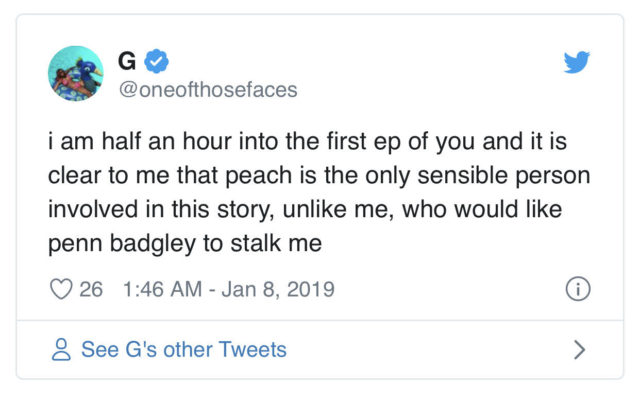
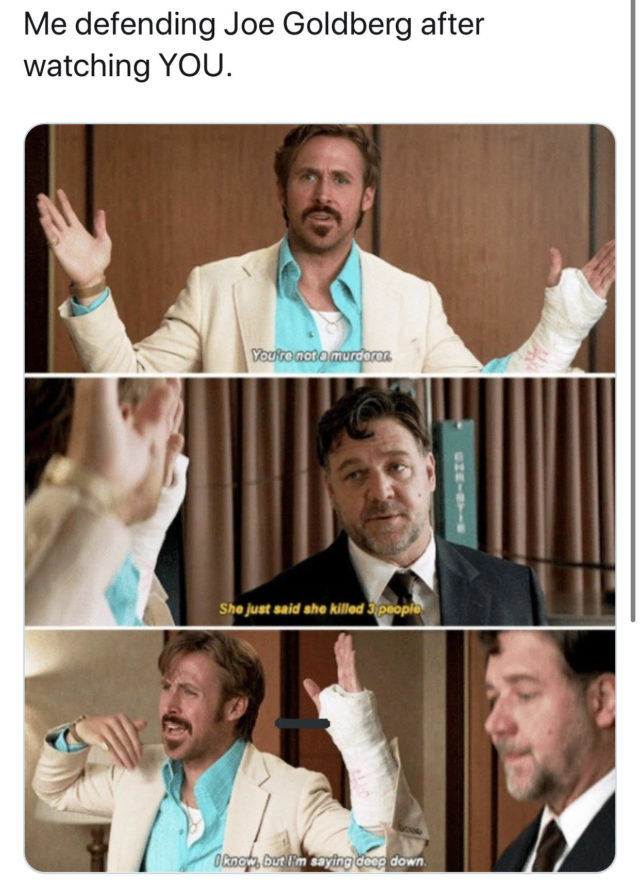
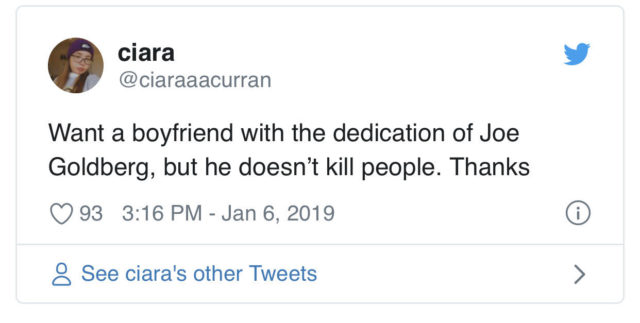
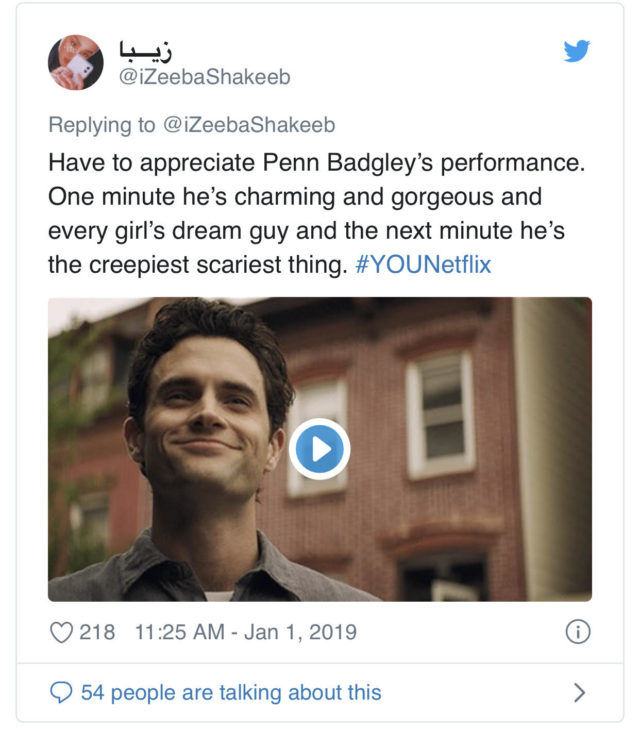
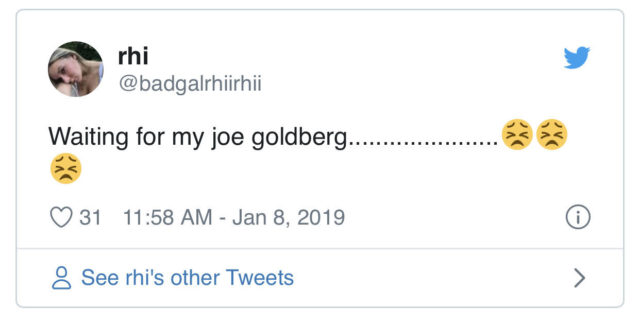

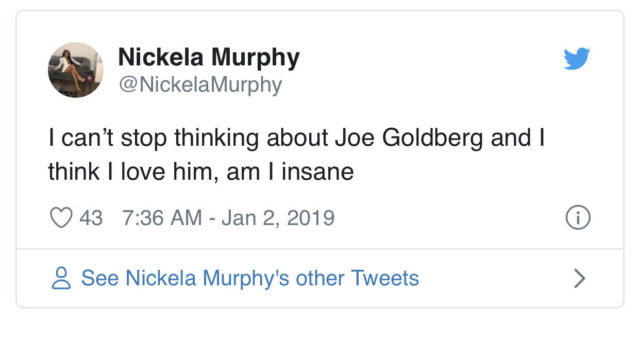
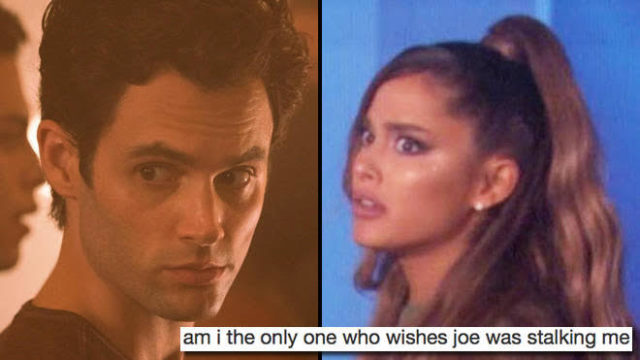
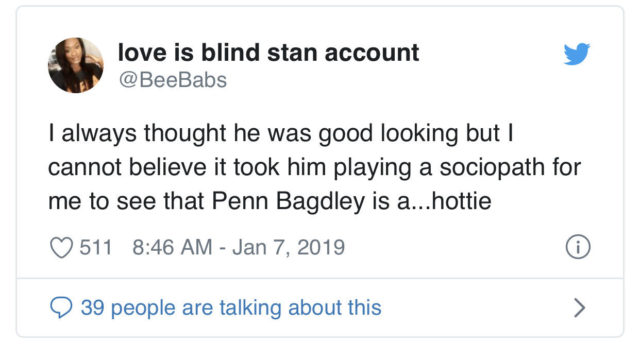
While humorous on the surface, such responses glorify men like Joe. Aside from the issue of eroticizing his controlling behavior and confusing it with actual love, we are also feeding into “decades of cultural attitudes that have worn away at the agency of women, of romance tropes that valorize the persistence of men in pursuit of a woman, and the gendered head games that give men the upper hand in most every interaction they have” (Josh Rivera, Netflix’s stalker thriller You returns for a second season, and it kills, The Verge).
Therefore, the main issues with the show YOU are two-fold: not only are we romanticizing toxic and scheming behavior, but we are fueling the system of power that seeks to silence women and their stories. Love is not controlling. Love is not possessive. But by spreading the narrative that it is, we are exploiting a vulnerability that disproportionately pertains to women.
From a young age, women are taught that their value and self-worth are dependent on having a man who loves them and wants them. And it is for this reason that we are so caught up in Joe. He makes us feel like we are the damsel in distress who is waiting to be saved by her knight in shining armor, and he does it well. And it is this very reason that YOU is toxic. It only perpetuates the heteronormative and victim-blaming narratives that we hear over and over again–of the charming and handsome man who hurts women and gets away with it. And we believe him.
YOU is problematic because it forces us to sympathize with the charming, sociopathic serial killer. The fact that the story is told from the perpetrator’s perspective, however, is not unique; it’s what we hear every day–on college campuses, in locker rooms, on tv, and in our own homes.
Society has always sympathized with the perpetrators of sexual violence– especially since the vast majority of perpetrators are men. By glamorizing Joe, we give men like him power. Power to erase our own voices and the voices of women whose stories about men’s violence against them are theirs to tell.
Joe is able to capitalize on his ability to control the narrative about how Beck is portrayed even after he murders her, similar to how men are able to control the narrative surrounding sexual violence today. By glorifying the show YOU, we are giving into the oppressive tropes of victim-blaming and the myth that sexual violence is a blameless crime, when it is not.
This is the narrative that we are feeding into.
Is this the narrative that we want to continue spreading?
